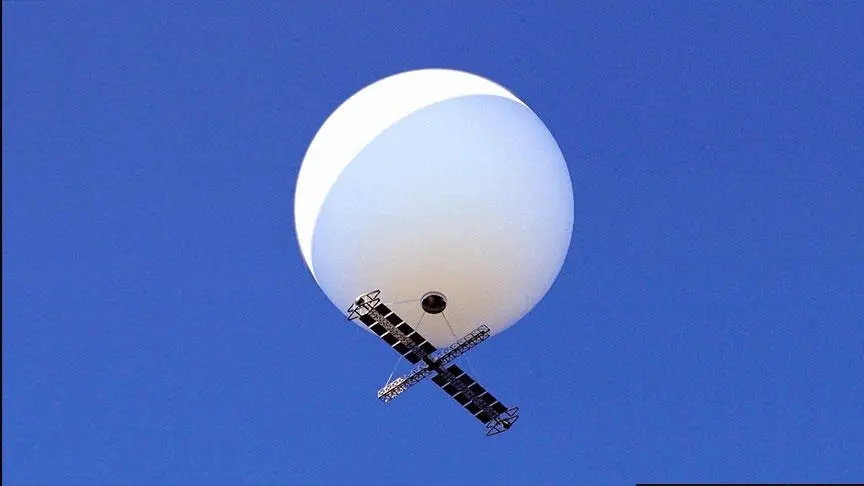In an interview with the website of the Strategic Council on Foreign Relations, Dr. Siamak Bagheri referred to the recent tension between Washington and Beijing after the shooting down of a Chinese balloon over American soil and stated: After this issue, the United States accused China of espionage and China, by rejecting it, stated that the balloon had entered the American sky involuntarily and that it was basically a balloon for scientific meteorological research.
He added: Regardless of the real targets of China, it seems that considering the strategy that the US is pursuing towards China to present the country as a security concern, this issue has provided a good excuse for the US anti-China propaganda because confronting this threat and spending money on it will be easier to deal with it and the American public opinion will also accompany such measures.
Bagheri pointed to the published news about the history of the flight of the balloon over the US during the Trump term of office and the different reaction compared to the Biden era and said: What was done during the recent balloon flight can also be evaluated as a kind of exploitation by the American parties. The Democrats and the Republicans will use it in different ways for the upcoming elections; the Republicans highlight Biden’s weakness and the harsh positions of the US administration also show that Biden is trying not to show weakness in this situation.
While explaining the harsh positions of the United States against the entry of a Chinese balloon into the American sky in the framework of the competition of powers, he noted: With this action and the controversy over it, the United States is trying to gain concessions from China and increase international pressure on Beijing in other disputed areas.
The university professor expressed China’s position regarding the shooting down of the Chinese balloon by the United States and added: Beijing had a very passive position. They responded by apologizing. It seems that they have decided to manage the crisis by reducing the cost factor, so that this tension does not become a big issue in public opinion and what the US follows with Sinophobia and showing the country as a threat, will be controlled.
At the same time, Bagheri pointed to some analyzes regarding China’s willingness to provide a decisive answer to the US in the face of the country’s pressures on Beijing in the Taiwan issue and noted: China may have sought to show a source of courage and to convey this message that if the tensions between the two countries become more intense, Beijing has the necessary power to respond to the US and penetrate into that country’s territory. For this reason, the US acted more violently in this regard.
Referring to the news published about the presence of a Chinese balloon over the third nuclear missile base of the United States, he said that this issue has increased the sensitivity of the issue, and regarding China’s possible response to the shooting down of the balloon, he said: The possibility of a response from China cannot be completely ruled out, but it seems that such a measure is out of the question in the current situation; because in this matter, the territorial and security environment of the US has been violated, and in international custom, the Chinese are somehow considered as a convict; therefore, they will not react more and will try to limit the dimensions of the issue.
China’s show of power or espionage over the US
Bagheri referred to the published news regarding the special technical characteristics of the destroyed balloon and the numerous equipment accompanying it, as well as the announcement of the dismissal of the head of the National Meteorological Organization of China and added: It is impossible to imagine that China in such a situation, with a balloon that moves very clearly, had been looking for espionage over the US. Espionage measures have their own conditions and characteristics, and under such conditions, are carried out with satellites. China knows that such possible action has difficult consequences for it. From this point of view, it can be assessed that China had no initial intention to spy on the US; but from other points of view, such measure can be analyzed as a kind of power display.
The expert on international affairs pointed to the US research on the remains of the destroyed balloon and continued: This issue can still be a source of controversy, and the United States can make excuses over its parts to score points by putting pressure on China. Therefore, in this regard, China incurred more costs and it was more expensive for it. The dismissal of the highest meteorological authority in that country was also an expression of this issue and it was trying to show the United States that this was not a purposeful and calculated action and that a human error was made.
He emphasized: American intelligence sources have claimed that this balloon is part of China’s surveillance program, which includes at least twenty-four missions over five continents in recent years, and almost half of those flights were carried out in American airspace; although it was not necessarily over the territory of that country. The US Federal Police are now examining the recovered balloon debris, trying to gather the necessary information and determine the best way to track Chinese balloons in the future. Therefore, the United States will still have the opportunity to repeatedly raise Sinophobia in public opinion by stating issues in this regard.










0 Comments